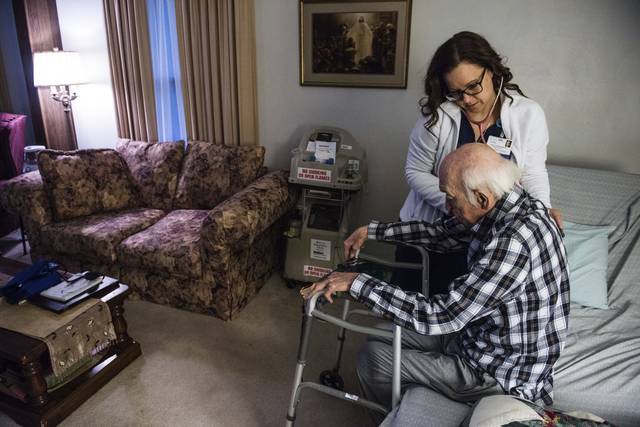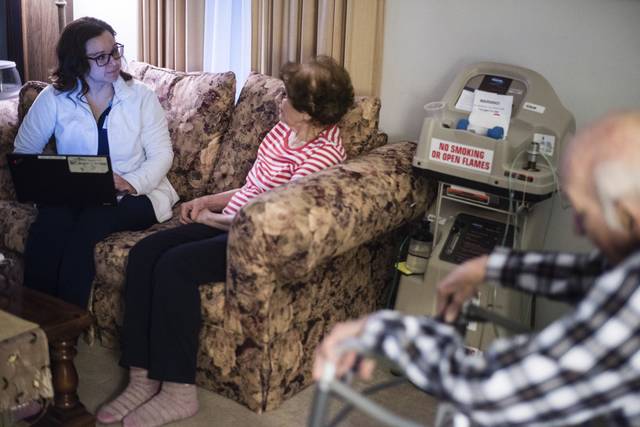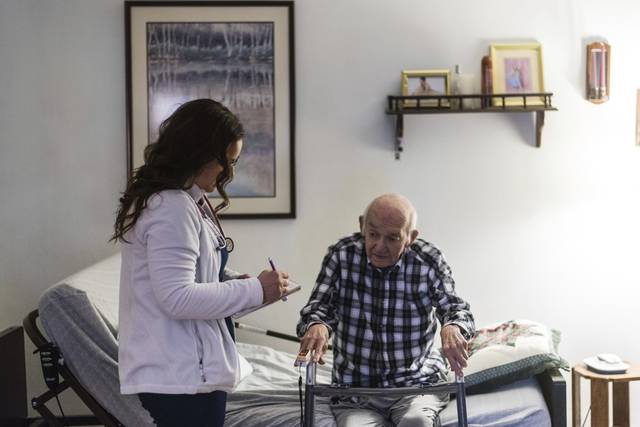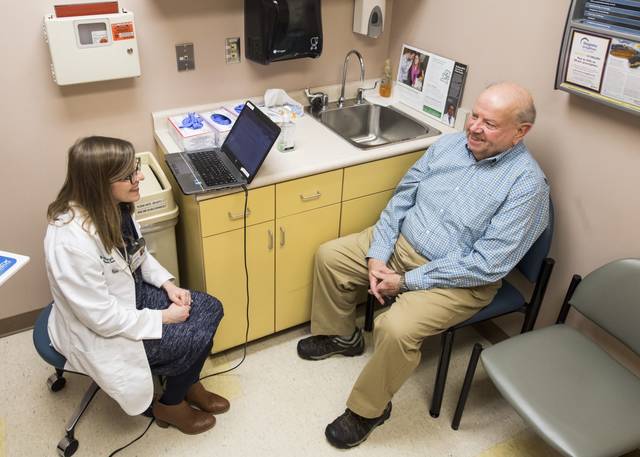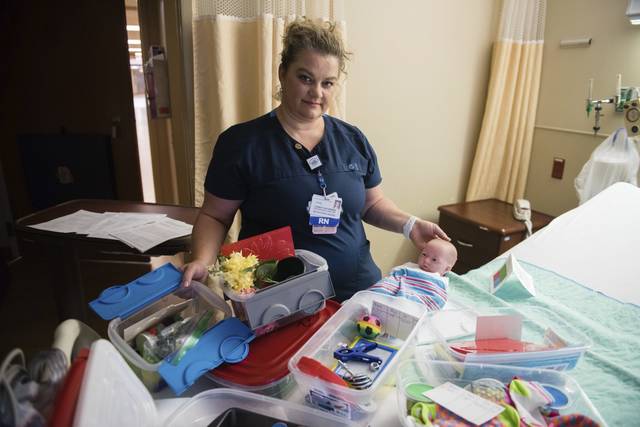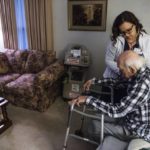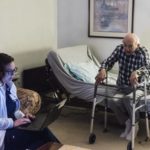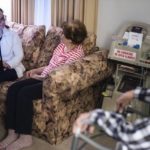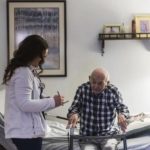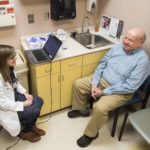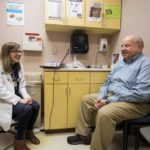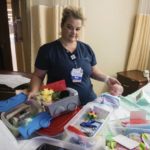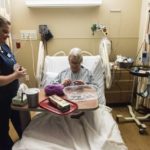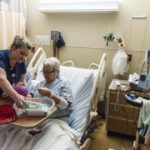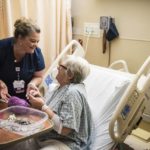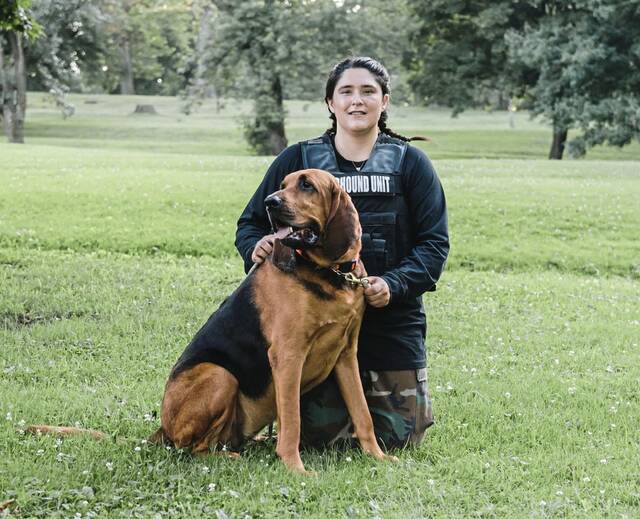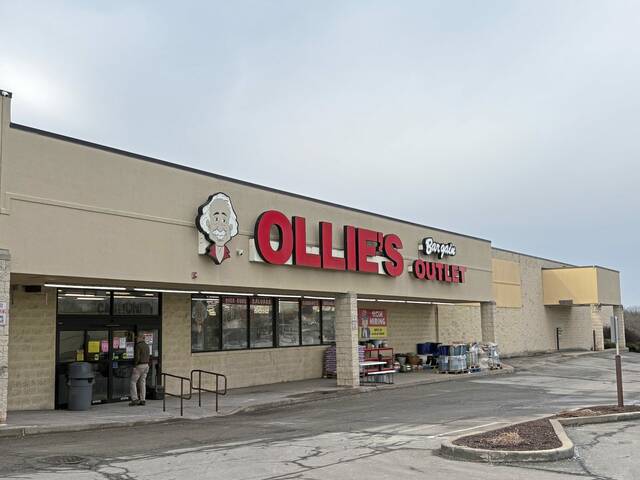Health systems like to tout new facilities and innovative treatment protocols, but some of their most significant advances in Southwestern Pennsylvania are happening quietly in medical schools, hospital rooms and homes where they are setting new standards in geriatric health care.
In a nation struggling to contain health care costs as it prepares to meet the graying of the baby boom generation, such innovations are critical.
And the demographics of Southwestern Pennsylvania, where about one out of five residents is 65 or older, position the region to create templates for the nation to adopt as it edges toward a similar profile in the next 15 years.
It’s happening at Excela Health System, where age-friendly policies are taking on new dimensions both in hospitals and home care.
It’s happening at Allegheny Health Network facilities, where personalized medicine can mean home visits by geriatricians and advanced practice nurses who are adopting protocols developed specifically for older patients.
It’s happening at the University of Pittsburgh School of Medicine, which has emphasized geriatric medicine for nearly 40 years and developed evidence-based best practices and innovations that are being adopted both at UPMC facilities and others across the country.
It’s all happening against the background of a shortage of specialists in geriatric medicine.
Science of aging
Dr. Neil Resnick is chairman of geriatric medicine at Pitt’s medical school. He said even before the region’s demographic profile flipped — the portion of the population 65 and older today outnumbers those 18 and younger — the late Dr. Thomas Detre was pioneering geriatrics there.
“Pitt was one of the very first centers of excellence in geriatrics in the country. … Over 20 years, we’ve had 100 people who have majored in it. In residency, they can major in geriatrics, too. That was the first in the country,” Resnick said.
While medical education in many schools still gives short shrift to geriatrics, Pitt makes sure all of its students get a taste of the science of aging. Resnick said that’s important because the same illness that would affect a 25-year-old one way might impact multiple systems in a 70-year-old patient.
Understanding that can make the difference between a seamless recovery and a short hospital stay or cascading problems that could result in longer stays, discharge to a nursing facility or repeat trips to the hospital.
Age-friendly
That is key to developments at Excela Health’s Westmoreland County community hospitals. Patients 65 and older account for about 57% of the patient mix at Excela Frick Hospital in Mt. Pleasant — compared to 40% in the nation’s hospitals as a whole.
“We’re doing work on the inpatient side to ensure people maintain alertness, and we’re developing relations in the post-hospital side of the equation, working to improve the transition from hospitalization to ambulation,” said Dr. Carol Fox, medical director at Excela.
Charity Patterson, a registered nurse who is board certified in gerontology, is among the staff at Excela working to ensure older patients maintain their dignity and abilities when they are hospitalized.
Patterson, whose patients at Excela Frick average from 70 to 74, decided a name change should be the first order of business in the halls where they are treated. Geriatrics seemed cold and hard-edged. Instead, she insisted the hospital work to become age-friendly, a term that seeks to create an awareness of the issues everyone faces with aging.
Experts have long known that delirium, a condition characterized by confusion and emotional disruption, can afflict older patients who face abrupt changes in their routine, such as hospitalization. Preventing it was high on Patterson’s list.
She’s been working on a project to assemble patient “busy boxes,” which include items designed to engage them. She said these include playing cards, adult coloring books, 3D puzzles or fidget tools that encourage hand-eye coordination and stimulate conversation.
“We need to talk to people, get to know them and give them things to do so they don’t fall into boredom or delirium,” Patterson said.
Engaging with HELP
Dr. Lyn Weinberg, chair of geriatrics at Allegheny Health Network facilities, said education and enhancing best practices of elder care both in hospital and home settings across the system has been a big part of her work.
That’s part of the goal of HELP (Hospital Elder Life Program), a volunteer program AHN officials hope to expand throughout its hospitals, including facilities in Natrona Heights, Monroeville, Canonsburg and Jefferson Hills.
The program, which relies on volunteer visitors, was first introduced in 2016 at Pittsburgh’s West Penn Hospital in Bloomfield and more recently expanded to Allegheny General Hospital on the North Side. A team of volunteers and nurses are trained to visit, engage with older patients and note any issues.
“We see everyone on our specific units who is 70 years old or above. Our volunteers see them. Our nurse sees them as well. If we see things that are concerns, we definitely get in touch with geriatric leaders and bounce things off with them,” program Director Autumn Moss-Corcoran said.
The program produced results almost immediately. More older patients maintained the functioning they had at admission. Delirium diagnoses were down 21%.
She said the program, which is also part of the elder care protocol at UPMC Shadyside, is one where the competing health systems “have a great relationship.”
“At West Penn, we saw a one-day decrease in length of stay in the first year. That cuts down on costs associated with delirium. We were able to estimate a $1 million savings with the decrease in stay and tests,” Moss-Corcoran said.
Home help
Finally, health system leaders across the region are tackling the tough challenges that frail elders face — like ensuring patients go home with medical equipment that will allow them to enhance their independence, delivering care in homes and helping families find nursing homes that allow those facing the ills of old age to live their best lives.
At Excela, that can come down to arranging for home care nurses who also work in tandem with other agencies and alert their patients to various community services that might take up some of the slack, such as meal preparation or pet care.
Or it may come down to community education initiatives about caregiver training, how to access home health, palliative care, veterans benefits and hospice care.
Experts know most people recover best where they are most comfortable. Typically that is at home. Ensuring they get the care they need can help them avoid returning to the hospital, Fox said.
Cart provides lifeline
Even the best efforts of well coordinated care can’t always eliminate the need for nursing home care.
Back at Pitt, Resnick said research suggested there were better ways to utilize technology to ensure nursing home patients received the best possible care.
He said doctors knew patients at nursing homes often experienced health issues in the middle of the night that led to ambulance trips to emergency rooms where doctors and nurses weren’t familiar with the patient and his or her history.
They knew there had to be a better answer than letting frail elderly patients wait in unfamiliar settings to get a doctor’s order for treatment that could be provided in-house at most nursing homes.
That realization led to the creation of a system involving a telemedicine cart, created specifically for nursing homes.
Resnick said that innovation has had impacts well beyond the University of Pittsburgh and UPMC.
The carts, produced by Curavi, a Southside-based company that was a spin-off from research at Pitt’s medical school, are used in about 150 nursing homes in 15 states.
When health issues require a physician’s attention after hours, nurses can dial into Curavi’s team of gerontologists who are able to access patient history records online and examine a patient using a bluetooth stethoscope and Skype technology.
Curavi has been a win for patients and providers at Providence Point, a Scott Township nursing home that began using the system last summer, said Jerry Pannell, a registered nurse and nursing home administrator who has worked in the industry for 25 years.
“When you have to send someone to the emergency room in the middle of the night, they might have to wait two hours where they’re not moving just to been seen for a UTI (urinary tract infection). They come back with deep tissue injuries that can become pressure wounds, ” Pannell said. “It’s been a real success story for us.”


